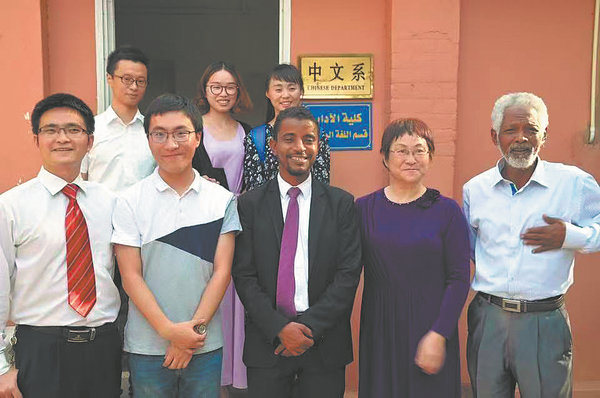

Abdalla recalls his father planting the seed early on: "When I was little, he would read Arabic translations of Chinese magazines and discuss Chinese politics and leaders, including Mao Zedong, often over morning tea with friends. I picked up words and names here and there."
Later, Abdalla watched Jackie Chan films, eager to see "whether a kung fu star could truly fly". "China and Sudan were expanding economic cooperation and forging closer ties, which explains its daily presence in the news," he says. "When I graduated from high school, I chose Chinese over economics and law. I wanted to understand China not through a Western lens, but by reading its story as the Chinese tell it, in their own language — both literally and metaphorically."
That was in 2004, two decades after the Chinese Language Department was founded. With only about 20 students and very few Chinese teachers — including Li Huiyang, who taught there from 2006 to 2008 — resources were scarce.
"Chinese language education in Sudan was just beginning to recover after the civil war and severe economic hardship of the 1990s. There was a serious shortage of teachers, which is why I went as a volunteer, recruited from a middle school in Lanzhou, northwestern China," recalls Li, who remembers sweating through classes during the hot months following the rainy season.